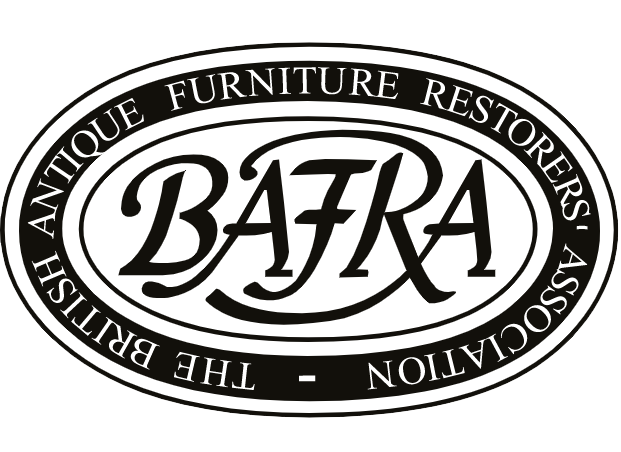
Antique Organ Restoration & Repair
At BAFRA, we provide access to antique organ restoration and repair. Every member has been rigorously assessed and vetted. Our members are all established businesses that are fully accredited and work to the highest standards and ethics.
Antique Organ Restorers at BAFRA
Antique organ restoration breathes new life into historical instruments, preserving their unique sound and historical significance. The British Antique Furniture Restorers' Association (BAFRA) is dedicated to maintaining high standards in this specialised field, ensuring that each organ's character and integrity are faithfully restored.
Restoration begins with a comprehensive assessment to understand the instrument's condition and historical context. BAFRA skilled craftsmen then undertake careful disassembly, documenting each component to ensure accurate reassembly. Cleaning and repairing or replacing worn parts is essential, involving traditional techniques and materials to maintain authenticity. The organ's pipes, wind chest, bellows, and console receive particular attention, as their condition directly affects sound quality. Voicing, the process of adjusting pipes to achieve the desired tone, is a delicate art requiring both technical expertise and a deep understanding of the instrument's original acoustics.
Restored organs capable of delivering the rich, nuanced sounds for which they were originally crafted. By preserving these musical treasures, BAFRA members help ensure that the legacy of these majestic instruments continues to inspire and enchant future generations.
Antique Organ Restoration FAQs
Can antique organs be restored or repaired?
Antique organs can be restored or repaired by BAFRA specialists. During the restoration process, they will strive to bring many types of antique organs back to their original grandeur. This includes the restoration and repair of the organ pedals and pedal straps, the bellows, the soundboard, and action, along with the keyboard, numerous cabinet pieces, the keyboard cover, side handles, repairing broken and missing carvings, mouldings, and more.
What are the signs that my antique organ needs restoration?
Signs that your antique organ needs restoration include a noticeable decline in sound quality, such as weak, uneven, or out-of-tune notes. Mechanical issues like sticking keys or pedals, air leaks from the bellows, and malfunctioning stops are also indicators. Visible damage, including cracks, warping, or deterioration of wood and metal components, suggests the organ's structure is compromised. Additionally, if the organ has been unused for a long period, it may suffer from dust accumulation, mould, or pests. Regular inspections by a qualified restorer can help identify these issues early, ensuring timely and effective restoration to preserve the instrument.
What kind of antique organs can be restored or repaired?
BAFRA specialist restorers can restore and repair many types of antique organs including antique pump organs, pipe organs, reed organs and accordions, restoring the cases and all mechanisms, which are disassembled and restored to perfect condition including the reeds, valves, and bellows. Restoration encompasses instruments from different historical periods, whether they are church organs, theatre organs, or smaller parlour organs, preserving their unique sounds and historical value.
Can all parts of an antique organ be restored?
Most parts of an antique organ can be restored, but the extent of restoration depends on the condition and availability of original materials. Components like pipes, wind chests, bellows, and consoles are typically repairable using traditional techniques and materials to maintain historical authenticity. Severely damaged parts might need careful replacement with replicas crafted to match the original specifications. In cases where original parts are beyond repair, BAFRA skilled restorers can fabricate new pieces that honour the organ's historical and functional integrity, ensuring the restored instrument remains as true to its original form and sound as possible.
How long does the restoration process take?
The duration of antique organ restoration varies depending on the instrument's size, condition, and complexity. Typically, smaller or less complex restorations can take a month or two, while larger or more intricate projects may require much longer. Each restoration is unique, involving detailed assessments, careful disassembly, cleaning, repair, and reassembly. Ensuring historical accuracy and high-quality craftsmanship takes time, so patience is essential to achieve the best results and preserve the organ's integrity.
Will restoration affect the organ’s value?
Proper restoration by a skilled and reputable BAFRA restorer can enhance an antique organ's value by preserving its historical and functional integrity. A well-executed restoration ensures that the organ retains its original character and sound quality, making it more attractive to collectors, musicians, and historians. Conversely, poor restoration can diminish an organ's value by compromising its authenticity and structural integrity. Choosing a BAFRA-accredited restorer guarantees high-quality work that respects the organ's historical significance, ultimately protecting and potentially increasing its market value and appeal to future generations.
Why choose a BAFRA-accredited member for antique organ restoration?
BAFRA members have in-depth knowledge based on more than 20 years of experience in antique organ restoration. Choosing a BAFRA-accredited member for antique organ restoration ensures expertise, quality, and adherence to the highest standards. BAFRA members are skilled craftsmen with extensive knowledge of historical techniques and materials, ensuring that each restoration is authentic and respectful of the instrument's original character. Accreditation guarantees professionalism, ethical practices, and a commitment to excellence, providing confidence that your cherished antique organ will be meticulously restored and preserved for future generations to appreciate and enjoy.
Find BAFRA-Accredited Antique Organ Restoration & Repair Specialists
All accredited, full members are required to have at least five years as a conservation-restoration professional (the average member today has 23 years of experience) and pass an exacting assessment on their skills, knowledge and business credentials. Our members acknowledge the importance of continuous professional development to keep abreast of advances in knowledge, skills and technical developments in antique organ restoration and repair.
Find BAFRA-accredited antique organ restoration specialists near you by clicking the button below and entering your postcode.

